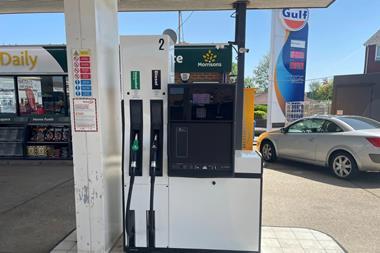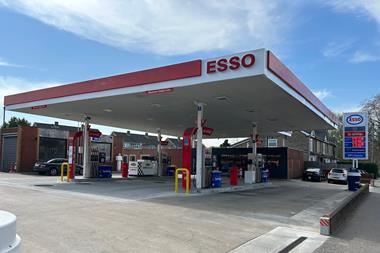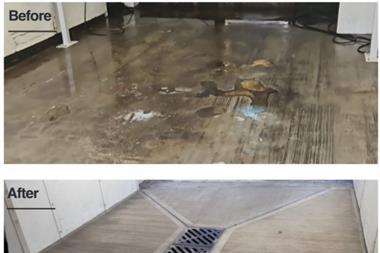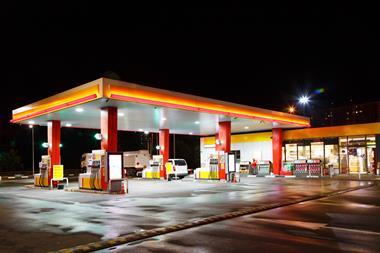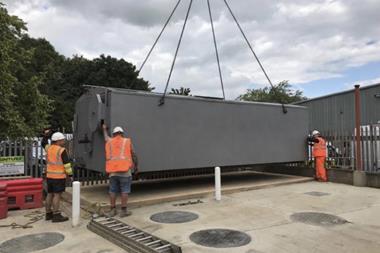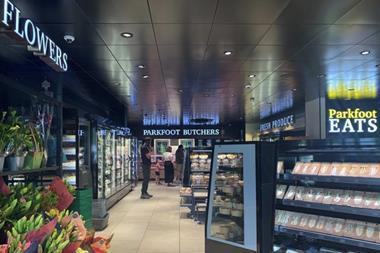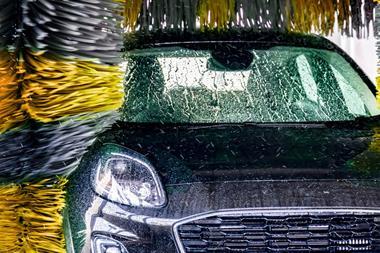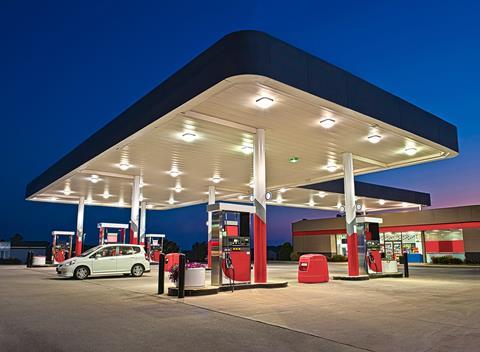
We all know the importance of first impressions, and a clean forecourt definitely provides a welcoming first impression for customers.
It differentiates your business from competitors, drives repeat visits and brand loyalty while, most importantly, it gives consumers confidence to buy food and drink when they go to pay for their fuel.
Perry Paganelli, vice president for Europe at outdoor cleaning firm CAF, says: “The winter months produce a significant amount of gunk and grime build up on the forecourt. As the days grow longer and temperatures rise, now is the time for fuel retailers to shift their focus back to forecourt maintenance and focus on spring cleaning.
‘A clean and well-maintained forecourt isn’t just about aesthetics – it’s a direct reflection of your brand, a key factor in customer retention and a proactive measure to extend the life of your equipment and infrastructure. With the busy summer right around the corner, taking a strategic approach to forecourt cleaning now will save time, labour and costs in the long run.”
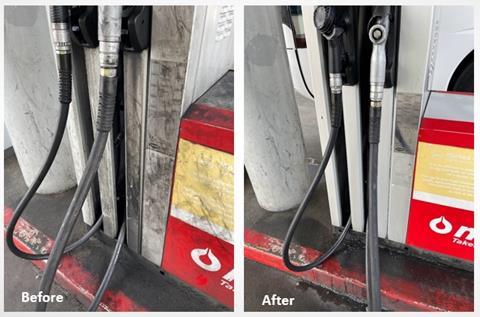
Three essential steps to spring cleaning your forecourt
Paganelli shares his three essential steps for cleaning:
1 Maintaining clean dispensers, hoses and nozzles: Fuel dispensers are among the most frequently touched surfaces at your station. Regularly wiping down pumps and cradles removes grime and prevents build-up. Adding a protective coating helps maintain the shine and protect against UV damage.
2 Tackling diesel and deep stains: Using bioremediation-based solutions on concrete and paver surfaces breaks down hydrocarbons and stains naturally, without wasting water, reduces lane downtime and is the most effective and environmentally responsible alternative to pressure washing.
3 Maintaining rubbish bins and outdoor fixtures: Dirty rubbish bins create an unpleasant odour, poor customer experience and attract pests. Emptying bins daily and cleaning inside and out prevents odours and sticky residues, improving the overall site appearance.
“Taking advantage of the next three months and understanding peak and off-peak fuelling hours allows forecourt managers to plan cleaning schedules efficiently. According to industry research, fuel sales peak from 6am to 7pm, with lower traffic in the evenings and on Sunday mornings. Here’s an optimal schedule for cleaning tasks:
• Sunday morning: Best time to apply bioremediation products to break down oil stains with minimal disruption.
• Mid-morning or evening: Ideal for cleaning diesel nozzles and dispensers when traffic is lower.
• Night shift: Best time for cleaning trash cans, bollards, air units and windscreen stations.
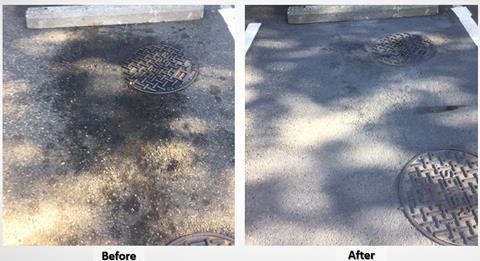
Additional spring-cleaning tips:
• Focus on one lane per day – deep-cleaning one lane at a time prevents overwhelming staff and keeps maintenance efficient.
• Prioritise customer touchpoints – quickly cleaning and wiping down nozzles and dispensers improves hygiene and customer satisfaction.
• Pre-treat heavy diesel stains – weekly treatment enhances the effectiveness of stain removal solutions.
• Dispenser island maintenance – clean curbing and bollards to maintain a professional appearance.
• Tackle gum and sticky residues – removing gum and adhesive residue daily helps keep the area looking fresh and eliminates customer frustration of stepping on gum.
“By implementing a structured forecourt spring cleaning Initiative, followed by a weekly investment of at least one hour of scheduled forecourt cleaning, operators can ensure their sites are primed for the peak summer season while maintaining a consistently positive customer experience all year round,” says Paganelli.
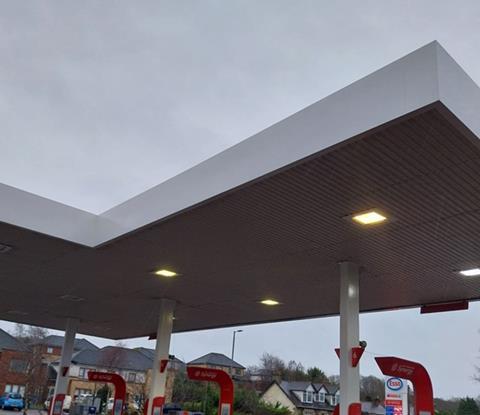
Care and protect
The advice from Cheryl Ashton, marketing co-ordinator at TSG Solutions, is to be proactive not reactive when it comes to cleaning and maintenance. As such she recommends TSG’s Care & Protect maintenance programme for all site assets. “This service is tailored to meet the needs of modern, multi-functional forecourts, revitalising older locations and maintaining newer ones in pristine condition. Regular cleaning routines are vital, but staff should not be expected to handle more challenging tasks that require professional assistance from third-party services, such as TSG UK.”
Ashton says canopies are often neglected, leading to a build-up of grime. “TSG’s specialists can restore the canopy, lighting and fascia panels to their original state, enhancing the site’s appeal. Cobwebs and dust on canopy lighting can create an uninviting atmosphere, especially with broken or malfunctioning lamps. TSG can address these issues, ensuring the site remains attractive and well-lit.”
Signage is obviously very important across the forecourt and to ensure longevity and prevent long-term damage, Ashton says that all forecourt signage should be kept clean and free of rust. “Any tears or vandalism should be addressed promptly and, if repairs aren’t feasible, the sign should be replaced. Adopting a proactive strategy for sign maintenance will help preserve the brand’s authenticity and safeguard the site’s reputation.”
Meanwhile, dispensing equipment is continually exposed to scuff marks, fuel drips and fingerprints, which Ashton says necessitates end-of-day inspections for damage. “Daily maintenance alone is insufficient to maintain optimal equipment condition; a comprehensive cleaning schedule is essential, during which branding decals can be checked and replaced as needed.”
Comprehensive coverage
TSG’s Care & Protect solution’s comprehensive coverage Includes: branding (external and internal); signage (external and internal); forecourt canopies (including structural repairs); main identification displays/totems; external and internal site illumination; area, line and floor graphics; external and internal décor; car wash and fuel dispenser maintenance; high-pressure cleaning (surface, canopy and under sheeting); mould and algae treatment (for vertical surfaces); perimeter boundary and fencing repairs; weed treatments; forecourt cleaning supplies; regulatory health and safety notices; and electrical and hazard area testing.
“Before preparing a Care & Protect contract, each forecourt undergoes a thorough site survey to identify areas that would benefit from TSG’s intensive cleaning and maintenance services,” says Ashton.
“The proposed service level will depend on the inspection results. Forecourt owners can customise their plan by adding or removing elements before finalising the course of action and preferred timeline, ensuring the perfect package for their site or network.”
By choosing TSG’s Care and Protect solution, retailers can safeguard their business investment effectively.
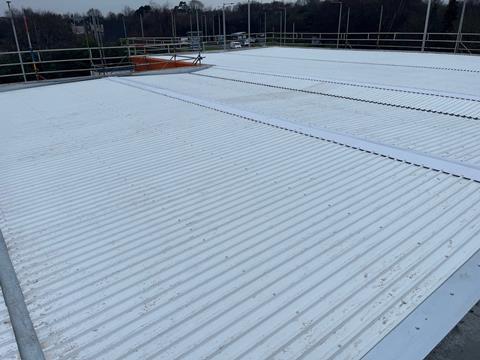
Canopy care
Canopies have already been mentioned but they do require special care as they are prone to damage – from the weather and from high-sided vehicles.
Andy Kennedy, business development director at canopy experts Global-MSI, says: “Most forecourt canopies were designed for a life of 25 years. Given the changes in weather events, canopies are needing to withstand more extreme conditions than ever previously predicted. With our extensive archive of drawings and records covering most UK forecourts, we know that a significant number of forecourt canopies are over 25 years old and many are at least 40 years old. Our concern is the lack of preventative maintenance or regular inspections being carried out on these structures.”
Kennedy says that, luckily, failures in canopies are rare. And failures in the fabric of the canopy are generally caused by corrosion, impact or poor maintenance.
“Corrosion is the biggest concern. This process accelerates where either the paint coating is damaged, or the canopy doesn’t drain effectively. One very common problem we find is dented roof sheets, caused by foot traffic. Another problem is blocked drainage causing an overflow into the columns, leading to corrosion from the inside.
“Impact damage to canopies is a frequent occurrence. When this happens, it can often damage the internal parts of the canopy. That is why we would recommend a proper structural survey after the event, not just a patch up of the signware.”
Kennedy adds that poor quality maintenance is a genuine concern and something that Global-MSI sees regularly.” It may be because cost saving has driven a ‘cheapest quote wins’ decision. However, the cheapest job in the short term, may not be the most cost effective in the long-term.”
He recommends regular planned maintenance inspections for the following reasons:
• As an early warning before any issues deteriorate further.
• Regular maintenance schedules can be far cheaper than you think. If the survey is carried out by a trained canopy engineer, they can often carry out small maintenance repairs at no additional cost, at the time of the survey.
• Don’t leave minor repairs until they become major or urgent as this will lead to higher costs.
• If possible don’t opt for the cheapest quote. It may be the cheapest for a reason. Ask questions as to what the damage is, what the repair entails and exactly how long it will last.
• Look at longer-term investments to protect your canopy from damage. This can range from simple strategic placement of bollards to cutting back problem sections of the canopy or raising it to accommodate larger vehicles.
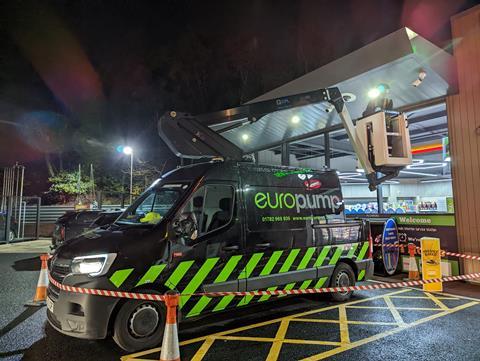
Don’t forget the jet wash bays
With valeting, once again, a vital part of the forecourt offer, keeping your car wash area and jet wash bays clean is paramount.
Eurotank Environmental advises regular interceptor and drainage maintenance visits and says these can also be combined with a jet wash bay valeting service, enabling customers to make cost savings by having one supplier provide multiple services during a single visit.
Jet wash bay valeting involves chemical cleaning of screens and machines in addition to the wash pits and silt traps using the company’s fleet of Rolba ADR tankers. Eurotank says jet wash bays should be cleaned between two and four times a year, depending on how busy the valeting facilities are.
Other forecourt cleaning services provided by Eurotank Service Group are equipment, canopy and CCTV cleaning, using Europump’s fleet of cherry picker vans. “Cleaning pumps, the forecourt canopy and CCTV cameras is a big challenge that many retailers are not delivering but an annual clean really lifts a site and can help retailers retain more customers,” says Edward Wheeler, group managing director of Eurotank. “A cherry picker is costly to have on site so we recommend completing as many maintenance tasks as possible in one visit. We also use cherry pickers to carry out vapour recovery stage 1b testing, which is recommended annually.”
























